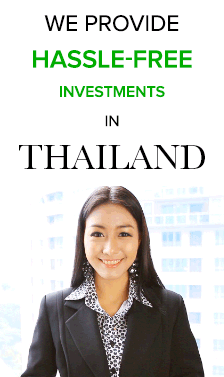CapitaLand plans plush office tower for Ho Chi Minh City

Above: CapitaLand’s first “international Grade A” office property in Vietnam.
Singapore government-linked company has $500 million fund planned for Vietnam
SINGAPORE — CapitaLand, Southeast Asia’s leading real estate developer, is entering Vietnam’s office space market. The Singapore government-linked company announced on Tuesday that it has agreed to acquire a 0.6 hectare lot in Ho Chi Minh City’s central business district.
It intends to build an office tower on the property that would cater to foreign banks and big multinationals.

Above: The company has 22 serviced apartments and nine residential developments in Vietnam.
CapitaLand has developed high-end office towers in Singapore and elsewhere in Asia, serving corporate tenants from around the world. It now intends to be a major player in Vietnam’s growing office space market.
The tower is to be CapitaLand’s first “international Grade A” office property in Vietnam, the company said in a press release.
CapitaLand expects to begin construction by March and to complete the building in 2020. The 240-meter tower is to have total floor space of 106,000 sq. meters.
According to the press release, demand for “Grade A” office space in Vietnam is “expected to grow further with limited new supply coming to market in the next few years.”

Above: President and CEO Lim Ming Yan said in the press release. “And we will continue to look out for opportunities to grow our footprint.”
CapitaLand sees rent in the segment increasing 4% a year during the next few years.
“We are excited to be a long-term player in Vietnam’s growth story,” President and CEO Lim Ming Yan said in the press release. “And we will continue to look out for opportunities to grow our footprint.”
A company spokesperson said CapitaLand will disclose how much it paid for the lot and how much it expects to spend developing the tower when the purchase of the real estate is completed sometime around March.
This is the first stand-alone office development for CapitaLand in Vietnam, where the company has 22 serviced apartments and nine residential developments. One of its serviced apartment complexes in the country includes an office element.

Above: CapitaLand expected to grow further with limited new supply coming to market in the next few years.
Source: Nikkei Asian Review
Vietnam launches e-visas for visitors from 40 countries
Nationals of eligible countries will be able to apply for a 30-day single-entry e-visa starting February 1.The Vietnamese government has announced a two-year pilot plan to launch an electronic visa system for foreign tourists visiting the country.
Under a government directive released in late January, citizens from 40 countries will be eligible to apply for the e-visas starting on February 1. Included on the list are China, Japan, South Korea, the U.S., the U.K., Germany and Sweden, all major target markets for Vietnam’s tourism sector.
Applicants are required to complete a form available on two separate websites (one in Vietnamese and the other in English) run by the Ministry of Public Security. They will receive an application code and will be asked to pay a non-refundable fee online.It will take three working days for tourists to find out if their applications have been approved or not, according to the directive.Successful applicants will be able to print off their e-visas to present when they arrive.
Visitors can touch down at any of Vietnam’s eight international airports, including Tan Son Nhat in Ho Chi Minh City, Noi Bai in Hanoi and Da Nang in the central region. They can also arrive via land at 13 international border gates, and via sea at seven ports across the country.In November last year, Vietnam’s National Assembly overwhelmingly approved the plan to allow foreign visitors to apply online for 30-day, single-entry e-visas.
Apart from visa exemptions for tourists from the Association of South East Asian Nations (ASEAN), Vietnam offers 15-day visa exemptions for visitors from the U.K., France, Germany, Spain, Italy, Russia, Japan, South Korea, Denmark, Norway, Poland, Sweden and Belarus.Vietnam Tourism authorities are expecting to receive 11.5 million foreign arrivals this year, up 15 percent from 2016.
Source:vnexpress
Jetstar to fly from Sydney, Melbourne to Ho Chi Minh City
Jetstar is looking to break the monopoly on flights to Ho Chi Minh City (also known as Saigon) from Sydney and Melbourne with the launch of direct flights from mid-May.
Qantas’ low-cost offshoot will go up against national flag-carrier Vietnam Airlines on the route, with both airlines flying the advanced Boeing 787 on the eight-hour journey.
However, Vietnam Airlines will have the edge in frequency thanks to its daily flight schedule; would-be Jetstar passengers will need to tailor their schedule to suit one of the three days a week for flights out of Melbourne (commenting May 10) and four from Sydney (from May 11).
Vietnam Airlines also offers a better experience at the pointy end, with business class based on the familiar Zodiac Cirrus design popularised by Cathay Pacific, which convert into fully-flat beds and pffer direct aisle access for every passenger.
Jetstar’s Boeing 787 business class offers an appropriately low-cost take, with a 2-3-2 layout for reclining seats which are closer to premium economy in nature.
In related news, the Vietnamese government has proposed a US$860 million (A$1.14 billion) upgrade for Ho Chi Minh City’s congested Tan Son Nhat International Airport which would see two new terminals built by 2020.
This would boost Tan Son Nhat’s capacity to 45 million passengers per year. The airport was designed to handle 25 million passengers, a peak it expected to reach by 2020, but a surge in travellers saw capacity overloaded at 28 million passengers in 2016.
Source: Australian Business Traveller
Sansiri to launch 19 projects
SET-listed developer Sansiri Plc (SIRI) will launch 19 projects worth a combined 41.2 billion baht this year, aiming to secure 16% growth in presales to 36 billion.
As the property market is set to remain sluggish this year, with forecast growth of less than 5%, one of the key drivers for Sansiri’s growth will be investment in venture capital, said president Srettha Thavisin.
“We will invest in property technology and look for innovations that can link to our core business,” he said. “The property technology will not only help reinforce and improve our existing operations but also become our new income stream in the future.”
In a move to progress into the digital age and utilise enterprise data, the company will set up a data analytics and business intelligence centre as a new business unit, applying advanced data analytics and digital tools across its value chain.
He said the high household debt that caused a rise in mortgage lending rejection rates across the industry last year remains a key challenge for developers this year.
Of the 19 new projects being launched this year, eight will be condominiums worth 21.9 billion baht, accounting for 53% of total sale value. Nine more accounting for 45% will be single house projects worth 18.5 billion baht. Two townhouse sites worth 800 million baht will only account for 2%.
Among the new condo projects, four worth a combined 12 billion baht will be developed via a joint venture with BTS Group Holdings Plc. During 2015-16, they launched a total of eight projects worth a combined 30 billion baht, of which 70% was sold.
All of the new sites being launched this year will be located in Greater Bangkok as the property market in the provinces will remain sluggish and the government’s infrastructure plans there remain unclear, said Mr Srettha.
“Sansiri currently has total inventory worth a combined 3-4 billion baht in the provinces,” said chief operating officer Wanchak Buranasiri. “About 90% are condo units, which have been complete since 2015.
“We were very aggressive in the provincial property market in 2012-13. But after a drastic change in the political situation, the market has been sluggish,” he said.
Instead, Sansiri will give more weight to overseas buyers after successful presales last year from key Asian markets such as Hong Kong, Shanghai, Beijing, Singapore and Taipei.
It recorded 5.4 billion baht in presales, rising 55% from 2015 and above its target of 5 billion baht. In 2017, it aims to have 7.5 billion baht, up 40% as it will visit more cities like Tokyo by the end of January, and new Chinese cities later.
“We collect a deposit of 20-30% of the unit price from foreign buyers, most of whom used cash to secure unit transfers,” said Mr Srettha. “But foreign buyers had no risk of mortgage rejection and we will work with UOB and Bangkok Bank to facilitate them.”
Sansiri last year recorded 31.1 billion baht in presales, rising 9% from 2015. It expects to have 34 billion baht in revenue by the end of 2017.
Source: Bangkok Post
Coca-Cola Viet Nam increases investment capital in Hanoi
Ha Noi People’s Committee has allowed Coca-Cola Viet Nam Company to raise its investment capital to US$580 million in Viet Nam.
According to a licence granted to the American firm on Tuesday, Coca-Cola Viet Nam will increase its production scale and annual capacity to 790 million litres by 2024 and 1,215 million litres by 2030. The operation period will be limited to 50 years.Coca-Cola Viet Nam Company began investing in Ha Noi in 1994, with its first project launched in Thuong Tin District.
The United States has 103 projects licensed in the capital city with total registered investment capital of $239.3 million, about 1 per cent of the total foreign direct investment in the city. These projects are mainly in the fields of production, of which engineering occupies the highest volume with 31.3 per cent of total registered capital.
Addressing the ceremony, the chairman acknowledged the contributions of US investors, including Coca-Cola Vietnam to socio-economic development in Hanoi.Hanoi will support investors, Chung said, pledging that the city will create favourable conditions for the development of Coca-Cola Vietnam.In 2016, Hanoi recorded GRDP growth of 8.2 percent and received 3.11 billion USD from foreign investment, almost tripling the 2015 figure.The US has 103 licensed projects in Hanoi, with a total registered capital of 239.3 million USD, accounting for one percent of the city’s FDI.Coca-Cola Vietnam started its operation in Duyen Thai commune, Thuong Tin district, Hanoi in 1994.
Source:Vietnam news













